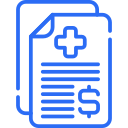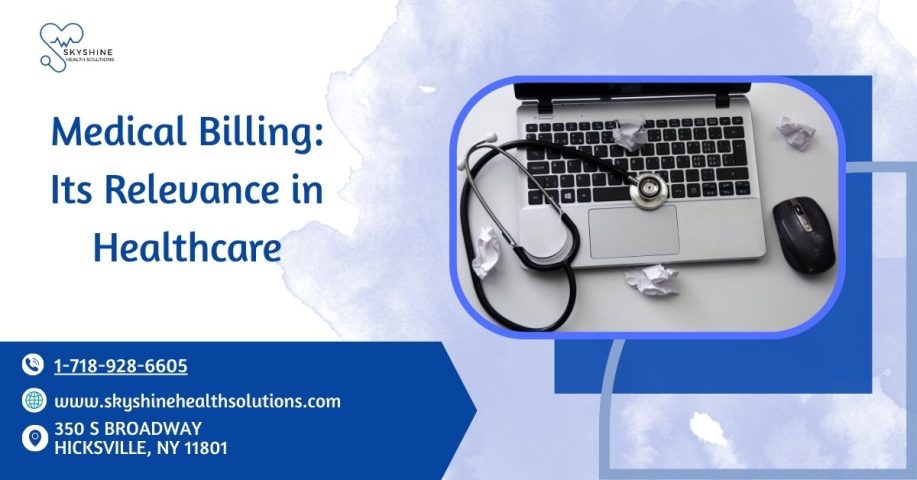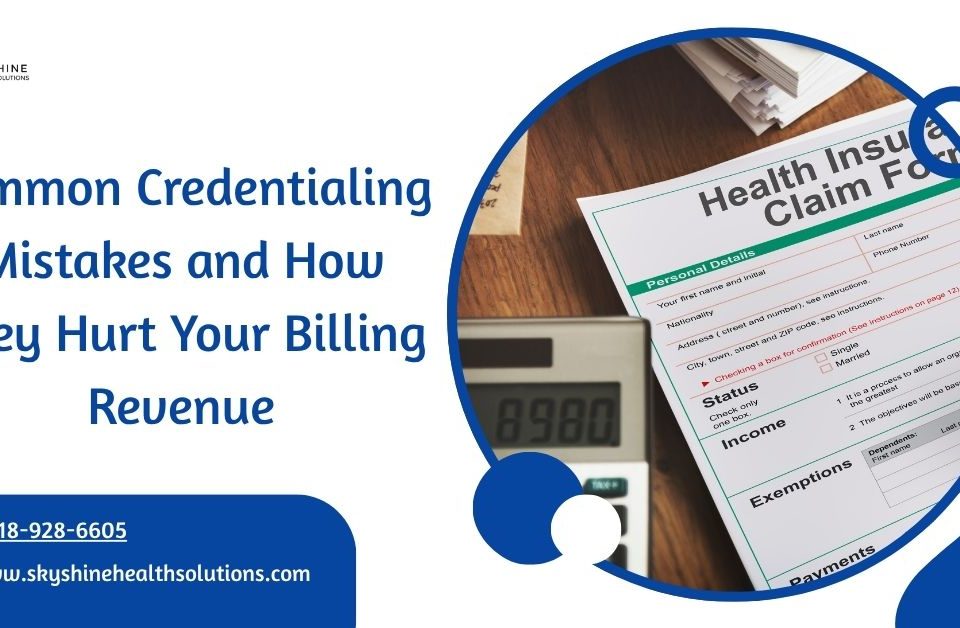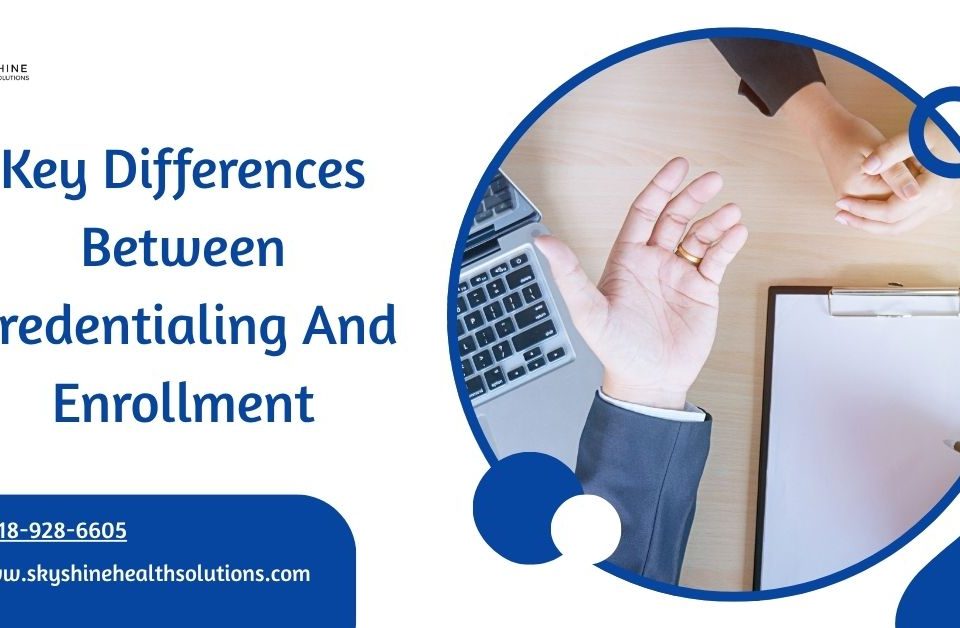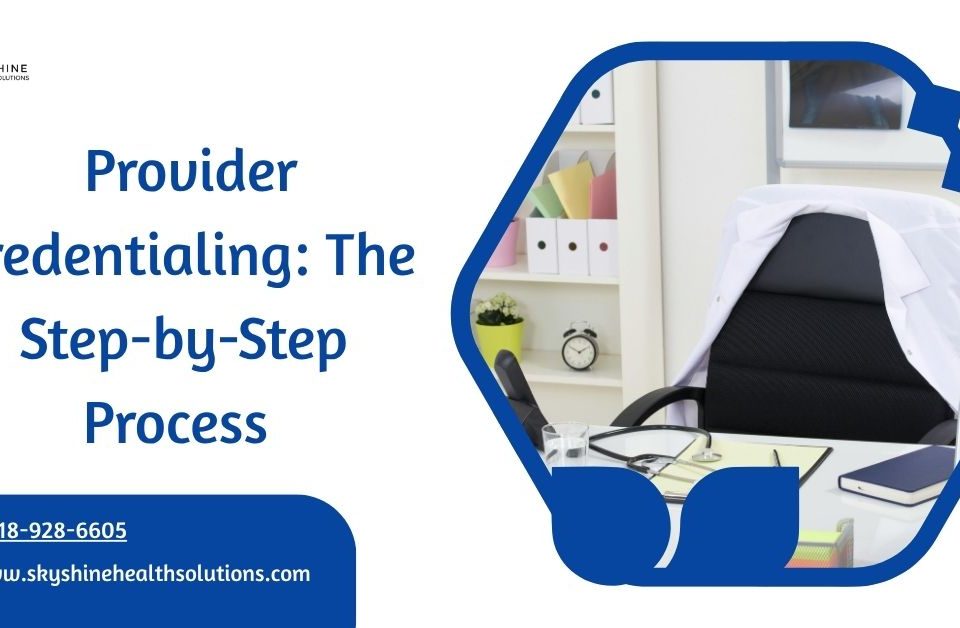
Medical Billing and Coding: What’s the Difference?
May 20, 2025In today’s complex healthcare landscape, medical billing serves as a vital component that ensures the financial health of medical practices and supports accessible, high-quality patient care. At Skyshine Health Solutions, we recognize the critical role accurate and efficient medical billing plays in connecting healthcare providers with the compensation they earn. In this blog, we explore why medical billing matters in healthcare and how it supports a thriving medical ecosystem.
What is Medical Billing?
Medical billing involves translating healthcare services into claims for payment from insurance companies or patients. Our team documents patient diagnoses, treatments, and procedures, codes them using standardized systems like ICD-10 and CPT, and submits claims to payers for reimbursement. This process ensures providers receive timely and accurate compensation while adhering to regulatory requirements.
Moreover, at Skyshine Health Solutions, we streamline this process, minimize errors, and maximize revenue, enabling healthcare providers to focus on delivering exceptional patient care.

The Importance of Medical Billing in Healthcare
1. Financial Stability for Healthcare Providers
Medical billing directly drives the revenue cycle for healthcare practices. Accurate billing secures prompt and correct reimbursement for services. Consequently, inefficient billing can lead to delayed payments, claim denials, or underpayments, which strain financial stability. Skyshine Health Solutions employs expert coders and billers who stay current with regulations to reduce errors and optimize cash flow for our clients.
2. Enhancing the Patient Experience
For instance, effective medical billing improves the patient experience by delivering clear and transparent billing statements. Patients often feel confused by complex bills, but accurate and straightforward billing builds trust. Therefore, Skyshine Health Solutions prioritizes patient-friendly billing processes, ensuring patients understand their financial obligations and receive support for billing-related questions.
3.Maintaining Compliance with Regulations
The healthcare industry operates under strict regulations, including HIPAA and payer-specific guidelines. Mistakes in coding or billing can trigger audits, fines, or legal issues. Furthermore, Skyshine Health Solutions ensures compliance with these standards, protecting providers from costly penalties and upholding the integrity of their practice.
4. Reducing Administrative Burden
Physicians and healthcare staff excel at saving lives, not navigating insurance claims or coding systems. As a result, outsourcing medical billing to experts allows providers to prioritize patient care over administrative tasks. At Skyshine Health Solutions, we handle claim submissions, follow-ups, and denial management, saving valuable time for healthcare professionals.
5. Boosting Revenue through Denial Management
Claim denials, often caused by coding errors, incomplete documentation, or missed deadlines, pose a significant challenge. Effective denial management recovers lost revenue. Accordingly, Skyshine Health Solutions uses proactive strategies to identify and resolve issues before they result in denials, ensuring providers receive maximum reimbursement.
Why Choose Skyshine Health Solutions?
Importantly, at Skyshine Health Solutions, we transform medical billing into a seamless, efficient, and reliable process that supports healthcare providers and their patients. Our services include:
-
-
-
Accurate Coding and Billing: Our certified coders ensure accurate claims to prevent denials and delays.
-
Comprehensive Revenue Cycle Management: We manage every step, from patient registration to final payment.
-
Advanced Technology: We use cutting-edge software to streamline billing and provide real-time insights.
-
Dedicated Support: Our team offers personalized assistance tailored to each practice’s unique needs.
-
-
By partnering with Skyshine Health Solutions, providers reduce administrative stress, improve financial outcomes, and enhance patient satisfaction.
The Future of Medical Billing
As healthcare evolves, so does medical billing. Emerging technologies like artificial intelligence and automation are revolutionizing claim processing and management. Skyshine Health Solutions adopts innovative tools to boost accuracy and efficiency. Additionally, our team actively monitors changes in healthcare policies and insurance regulations to stay informed and serve our clients better.
Conclusion
Medical billing extends beyond a back-office task; it forms the backbone of a sustainable healthcare system. By ensuring financial stability, compliance, and patient satisfaction, medical billing empowers providers to deliver high-quality care without administrative burdens. At Skyshine Health Solutions, we take pride in supporting healthcare providers with expert billing services tailored to their needs.
Ready to optimize your medical billing process? Contact Skyshine Health Solutions today to learn how we can help your practice thrive.

Learn more on Outsourced vs. In-House Billing: Pros & Cons for Small Practices
Learn at Reviews how we have improved lives. Have Questions? visit Medical Billing FAQs

